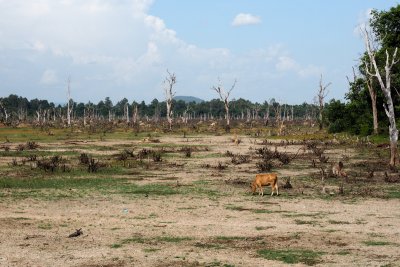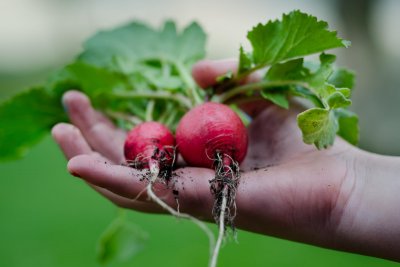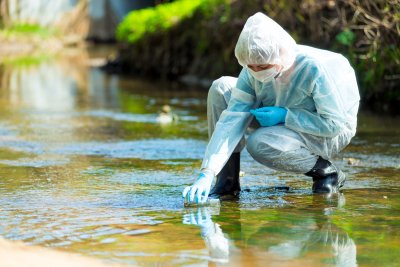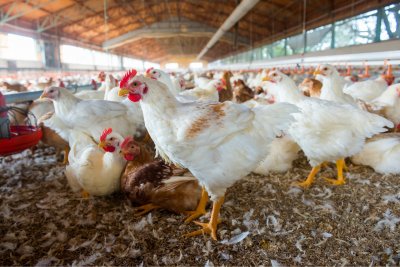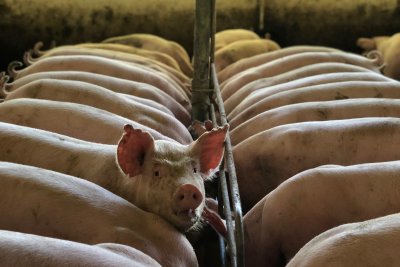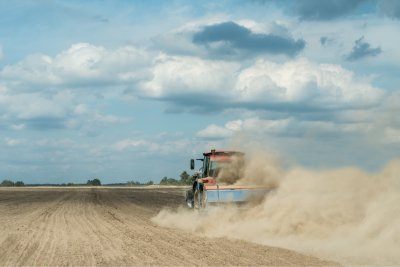.jpg) Boris Johnson participating in Sustain's Capital Growth food growing event when he was Mayor of London. Photo Credit: Sustain
Boris Johnson participating in Sustain's Capital Growth food growing event when he was Mayor of London. Photo Credit: Sustain
We are concerned that the plan completely fails to tackle emissions from the food and farming system, even though food production is the single greatest threat to the health of our planet, and actions to address this bring good jobs and would help make our food system more resiliant.
Ruth Westcott, climate change campaign coordinator at Sustain, said:
It is - of course - very welcome to see action from the Prime Minister on climate change, but astonishing and disappointing that there are no proposals to tackle emissions from food growing, production, manufacturing, and our diets. The evidence is clear, we can't limit warming to 1.5 degress or achieve net zero without addressing food.
Government must urgently do better. As a start, public sector food needs to exemplify what a good diet looks like; low in meat and dairy, high in fruit and vegetables, with seasonal and locally-sourced, ecologically made produce and not much ultra-processed food. The government promised in their manifesto to support more top-standard British growers and producers through public food but this is completely missing from today's proposals.
Procurement is just the start, the government must lead with other measures to make our diets more climate friendly, and taxes and other financial measures should not be off the table.
Secondly, new farm support schemes and guidance - and sufficient budget - should be directed towards making farms deliver nature, biodiversity and climate goals.
New data released this week shows that food is not adequately covered in local councils' climate plans. Investment needs to be channeled to local areas, via councils, to help them deliver solutions that benefit their communities including freeing up land for small-scale horticulture, planting fruit and nut trees including traditional orchards, buying food from more locally beneficial, low-waste supply chains, or supporting a thriving local food high street.
Food should be at the heart of a green recovery from Covid-19. Growing, manufacturing and buying sustainable food delivers more, better jobs; there are thousands of jobs up for grabs in fishing, for example, if we allow stocks to recover. If we grew more food on our land using agro-ecological techniques like organic, we could greatly increase biodiversity, produce more of our own fruit and veg, and increase rural employment.
This kind of investment is greatly needed at the moment, as many in the food and farming sector have suffered so badly since the Covid-19 outbreak and are at further risk from Brexit.
Food production accounts for 20-30% of global emissions, and as a major risk factor for future zoonotic diseases, as well as a leading driver of habitat loss and antibiotic resistance, our diets and farming practices combined are probably the greatest overall threat to the health of our planet.
Find out more about our work on climate change, including our new research into how well councils are tackling food-related emissions.
Climate Change and Nature: Sustain has taken a keen interest in the rapidly accumulating evidence about the effect of food and farming on climate change and nature, as scientific evidence emerges that our food system is a very significant contributor to greenhouse gas emissions and biodiversity loss.
Sustain
The Green House
244-254 Cambridge Heath Road
London E2 9DA
020 3559 6777
sustain@sustainweb.org
Sustain advocates food and agriculture policies and practices that enhance the health and welfare of people and animals, improve the working and living environment, promote equity and enrich society and culture.
© Sustain 2024
Registered charity (no. 1018643)
Data privacy & cookies
Icons by Icons8

